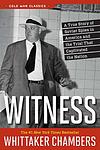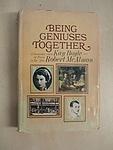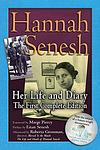The Greatest "Nonfiction, Autobiography, History" Books Since 1900
Click to learn how this list is calculated.
This list represents a comprehensive and trusted collection of the greatest books. Developed through a specialized algorithm, it brings together 300 'best of' book lists to form a definitive guide to the world's most acclaimed books. For those interested in how these books are chosen, additional details can be found on the rankings page.
Genres
Autobiography is a literary genre that focuses on the life story of the author. It is a first-person account of the author's experiences, thoughts, and emotions, often including significant events and milestones that have shaped their life. Autobiographies can be written by anyone, from famous public figures to ordinary people, and can cover a wide range of topics, including personal growth, career achievements, struggles, and relationships. This genre provides readers with a unique insight into the author's life and perspective, making it a popular and engaging category of books.
The category of "History" in books refers to the study and interpretation of past events, societies, and cultures. It encompasses a wide range of topics, including political, social, economic, and cultural developments, as well as the lives of individuals and groups who have shaped the course of history. History books can be written from various perspectives and may focus on specific time periods, regions, or themes. They aim to provide readers with a deeper understanding of the past and its impact on the present.
Countries
Date Range
Reading Statistics
Click the button below to see how many of these books you've read!
Download
If you're interested in downloading this list as a CSV file for use in a spreadsheet application, you can easily do so by clicking the button below. Please note that to ensure a manageable file size and faster download, the CSV will include details for only the first 500 books.
Download-
1. Homage to Catalonia by George Orwell
The book is a personal account of the author's experiences during the Spanish Civil War, specifically his time with the POUM (Partit Obrer d'Unificació Marxista) militia in Catalonia. He provides an in-depth look at the social revolution that took place, the daily life of a soldier, the political infighting and betrayals among the Republican factions, and his eventual disillusionment with the cause he initially supported. The book is both a war memoir and a detailed analysis of a complex political situation.
-
2. The Souls of Black Folk by W. E. B. Du Bois
This seminal work is a collection of essays that explores the history and condition of African Americans at the turn of the 20th century. It delves into the issues of race, class, and the socio-economic realities faced by black people post-emancipation. The author employs a combination of history, sociology, and personal narrative to present a powerful critique of American society, highlighting the struggle for civil rights, the importance of black spirituals, and the concept of "double consciousness" - the idea of viewing oneself through the lens of a society that sees you as inferior.
-
3. Night by Elie Wiesel
This book is a memoir of the author's experiences during the Holocaust, specifically in the Auschwitz and Buchenwald concentration camps. The narrative focuses on the relationship between a father and son under the most extreme circumstances, the loss of faith in God, humanity, and in each other, and the horrifying reality of the systematic genocide of six million Jews during World War II. The book is a poignant and stark examination of the depths of human evil and the enduring power of hope and survival.
-
4. The Seven Pillars of Wisdom by T. E. Lawrence
"The Seven Pillars of Wisdom" is an autobiographical account of the experiences of a British soldier serving in the Middle East during World War I. The narrative offers an insider's perspective of the Arab Revolt against the Ottoman Empire, detailing the author's role in the guerrilla warfare, his interactions with various tribal leaders, and his deep understanding and appreciation of the Arabic culture. The book is also known for its philosophical reflections on war, politics, and the author's personal struggles.
-
5. Tristes Tropiques by Claude Lévi-Strauss
"Tristes Tropiques" is a blend of autobiography, travel literature, and anthropology by a renowned scholar. The book is a recounting of the author's travels and anthropological work, primarily in Brazil, in the 1930s. It provides a critical and philosophical reflection on his experiences and observations, offering insights into indigenous tribes like the Nambikwara and Tupi-Kawahib, and exploring themes of cultural change, the nature of anthropology, and the author's own disillusionment with Western civilization.
-
6. Wild Swans: Three Daughters of China by Jung Chang
This book is a biographical account of three generations of women in China, spanning the years 1909 to 1991. The narrative follows the lives of the author's grandmother, a warlord's concubine; her mother, a high-ranking official in the Communist Party; and the author herself, who grew up during the Cultural Revolution before moving to the West. The book presents a vivid portrayal of the political and social changes in China during the 20th century, as seen through the eyes of these three women.
-
7. A Time Of Gifts by Patrick Leigh Fermor
The book is a vivid memoir that chronicles the adventures of a young man as he embarks on a remarkable journey on foot across Europe in the 1930s. Starting from the Hook of Holland, he traverses through landscapes and cities, encountering a diverse tapestry of cultures, languages, and historical remnants. Along the way, he is welcomed by a variety of individuals, from aristocrats to peasants, who enrich his experience with their stories and hospitality. His travels provide not only a physical journey through the continent but also a journey through time, as he reflects on the complexities of Europe's past and the ominous shadows cast by the approaching Second World War.
-
8. Up from Slavery by Booker T. Washington
The book is an autobiographical account of a former slave who rises to become a prominent educator and speaker. It chronicles his journey from enslavement during his childhood, through his struggles for education and his founding of Tuskegee Institute in Alabama. The narrative emphasizes the importance of education, hard work, and self-reliance as the keys to African American advancement, and provides a firsthand perspective on post-Civil War American South.
-
9. Long Walk To Freedom by Nelson Mandela
"Long Walk to Freedom" is a powerful autobiography that chronicles the extraordinary life of Nelson Mandela. From his humble beginnings in a rural village to becoming the first black president of South Africa, Mandela's journey is one of resilience, determination, and unwavering commitment to justice and equality. Through his personal experiences, he provides a vivid account of the struggle against apartheid, his 27 years of imprisonment, and the eventual triumph of democracy. This book serves as an inspiring testament to Mandela's unwavering spirit and his lifelong fight for freedom and human rights.
-
10. Twenty Years at Hull-House by Jane Addams
"Twenty Years at Hull-House" is a memoir that recounts the author's experiences co-founding and running a settlement house in a poverty-stricken, immigrant neighborhood in Chicago. The book details the struggles and triumphs of the community as they navigate social, economic, and cultural challenges, while also offering insight into the author's own evolution as a social reformer. Throughout, the author emphasizes the importance of empathy, understanding, and community engagement in addressing social inequality.
-
11. Witness by Whittaker Chambers
"Witness" is a gripping autobiography that chronicles the author's life as a Communist party member, his espionage activities for the Soviet Union, and his eventual renunciation of communism. The book also details his role as the key witness in the 1948 Alger Hiss trial, a high-profile case that had a major impact on American politics during the Cold War. The narrative explores themes of ideology, betrayal, and redemption, and provides a unique perspective on the ideological battles of the 20th century.
-
12. Into the Wild by Jon Krakauer
This striking narrative non-fiction tells the real-life story of a young man who turns his back on society to live in the Alaskan wilderness. Despite a privileged background and a promising future, he donates his savings to charity, abandons his car and most of his possessions, and embarks on a journey into the wild. His solitary existence in the wild, his struggles for survival, and his untimely death provide a profound exploration of the allure of wilderness and the human yearning for solitude and self-discovery.
-
13. The Drowned and the Saved by Primo Levi
This book is a deeply moving exploration of the Holocaust, written by a survivor. It delves into the horrifying experiences at Auschwitz, examining the psychological impact on the prisoners, the brutal behavior of the guards, and the complex moral dilemmas faced by both. The author also discusses the concept of memory and its unreliability, especially in the context of such traumatic events, and analyzes the ways in which the Holocaust has been represented and remembered in society. The book serves as a profound meditation on the human condition under extreme circumstances.
-
14. Hell's Angels by Hunter S. Thompson
This book provides an immersive exploration of the infamous motorcycle gang, the Hell's Angels, as seen through the eyes of a journalist who spent a year living and riding with them. The narrative delves into the lifestyle, mindset, and public perception of these notorious figures, offering a raw and unfiltered look into their world. It also examines the wider cultural context of the 1960s, including societal anxieties and the counterculture movement, and how these factors intersect with the Hell's Angels' existence.
-
15. Coming Of Age In Mississippi by Anne Moody
The book is a powerful autobiographical account of a young African American woman's life growing up in rural Mississippi during the 1940s and 1950s. It vividly portrays the struggles with poverty, racism, and sexism in a deeply segregated society, as well as her burgeoning activism. The narrative follows her journey from childhood, through her college years, and into her involvement with the Civil Rights Movement, offering a personal perspective on the fight for racial equality in the United States. Her story is one of courage and determination, reflecting the broader experiences of many black Americans during a pivotal era in American history.
-
16. The World Of Yesterday by Stefan Zweig
The book is a poignant memoir reflecting on the transformative events and cultural atmosphere of Europe before World War I, through the interwar years and into the rise of the Nazis. It captures the author's experiences of growing up in a vibrant pre-war Vienna, the intellectual richness and artistic achievements of the time, as well as the profound sense of loss as the world he knew disintegrated into chaos and totalitarianism. With a mix of nostalgia and despair, the narrative serves as a lament for the lost world of European culture and as a warning about the fragility of peace and the human cost of war.
-
17. All But My Life by Gerda Weissmann Klein
"All But My Life" is a poignant memoir of a young woman's six-year ordeal as a victim of Nazi cruelty. The narrative follows her life from a peaceful, upper-middle-class childhood in Bielitz, Poland, through her horrifying experiences and loss during the Holocaust, to her miraculous survival and marriage to an American soldier. It is a story of courage, resilience, and the enduring power of hope.
-
18. Being Geniuses Together by Robert McAlmon
"Being Geniuses Together" is a memoir that offers an intimate glimpse into the lives and social milieu of the expatriate writers and artists living in Paris during the 1920s. The narrative, rich with personal anecdotes and observations, paints a vivid portrait of the bohemian lifestyle and creative ferment of the Lost Generation. The book delves into the friendships, rivalries, and collaborations among some of the era's most renowned literary figures, providing a candid and often critical perspective on the talents and personalities that defined this iconic and transformative period in literary history.
-
19. Good Company by Frances Partridge
"Good Company" is a reflective memoir that offers an intimate glimpse into the life of a central figure within the Bloomsbury Group, an influential circle of intellectuals and artists in early 20th-century England. The book weaves personal anecdotes, diary entries, and letters to paint a vivid portrait of the author's friendships, loves, and the cultural milieu in which she lived. It provides an honest and often poignant exploration of the author's relationships with key literary and artistic figures of the time, their shared experiences during the tumultuous years of the World Wars, and the enduring impact of these relationships on her life and work. The memoir stands as a testament to the power of intellectual companionship and the profound influence of community on individual creativity.
-
20. Days In The Caucasus by Banine
"Days In The Caucasus" is a captivating memoir that follows the personal journey of a young woman living in the Caucasus region during the early 20th century. The author beautifully recounts her experiences growing up in a multicultural society, filled with vivid descriptions of the diverse landscapes, traditions, and people she encounters. From her childhood adventures to her first love, the author provides an intimate glimpse into a world on the brink of change, capturing both the joys and challenges of life in the Caucasus.
-
21. Memoirs Of A Revolutionist by Vera Figner
"Memoirs of a Revolutionist" is a captivating autobiography that chronicles the life of a remarkable woman, detailing her journey from a privileged upbringing to becoming a prominent figure in the Russian revolutionary movement. Through her personal experiences and reflections, the author provides a vivid account of the political and social upheaval in 19th-century Russia, shedding light on the struggles, sacrifices, and triumphs of those dedicated to the cause of revolution. This thought-provoking memoir offers valuable insights into the complexities of revolution and the indomitable spirit of those who fight for change.
-
22. Notes From The Blockade by Lydia Ginzburg
"Notes From The Blockade" is a poignant memoir that provides a firsthand account of life during the Siege of Leningrad in World War II. The author, Lydia Ginzburg, vividly describes the hardships, hunger, and constant fear experienced by the city's residents, while also exploring the resilience and strength of the human spirit. Through her powerful narrative, Ginzburg offers a deeply personal and moving portrayal of survival amidst unimaginable circumstances.
-
23. The Autobiography of Lincoln Steffens by Lincoln Steffens
This autobiography is a detailed account of the life of a renowned investigative journalist during the early 20th century. The book explores his experiences and observations of political corruption in American cities, his coverage of the Russian Revolution, and his eventual disillusionment with American capitalism. It provides a unique perspective on major socio-political events of the era, while also offering insight into the author's personal beliefs and moral struggles.
-
24. Guests Of The Sheik by Elizabeth Warnock Fernea
The book is an autobiographical account of a young American woman's experience living in a small Iraqi village in the late 1950s. As the wife of an anthropologist, she immerses herself in the local culture, particularly the lives of the women, navigating the complexities of gender roles, traditions, and the veil. The narrative offers an intimate glimpse into the domestic lives, social customs, and familial bonds of the villagers, while also reflecting on the author's own cultural assumptions and the process of cross-cultural understanding. Through her journey, the author gains a deeper appreciation for the community's way of life and confronts the challenges of being an outsider in a tightly-knit society.
-
25. Hannah Senesh by Hannah Senesh
This book is a collection of the diaries, letters, and poems of a young Jewish woman who emigrated from Hungary to Palestine in the 1930s, driven by her Zionist beliefs. She joined the Haganah and later volunteered for a daring military operation to parachute into Nazi-occupied Europe during World War II, with the aim of aiding Allied forces and rescuing Hungarian Jews from the Holocaust. Her writings reflect her courage, literary talent, and the depth of her commitment to her cause. Tragically captured, tortured, and eventually executed by the Nazis, she became an enduring symbol of bravery and sacrifice in the face of tyranny.
Reading Statistics
Click the button below to see how many of these books you've read!
Download
If you're interested in downloading this list as a CSV file for use in a spreadsheet application, you can easily do so by clicking the button below. Please note that to ensure a manageable file size and faster download, the CSV will include details for only the first 500 books.
Download























